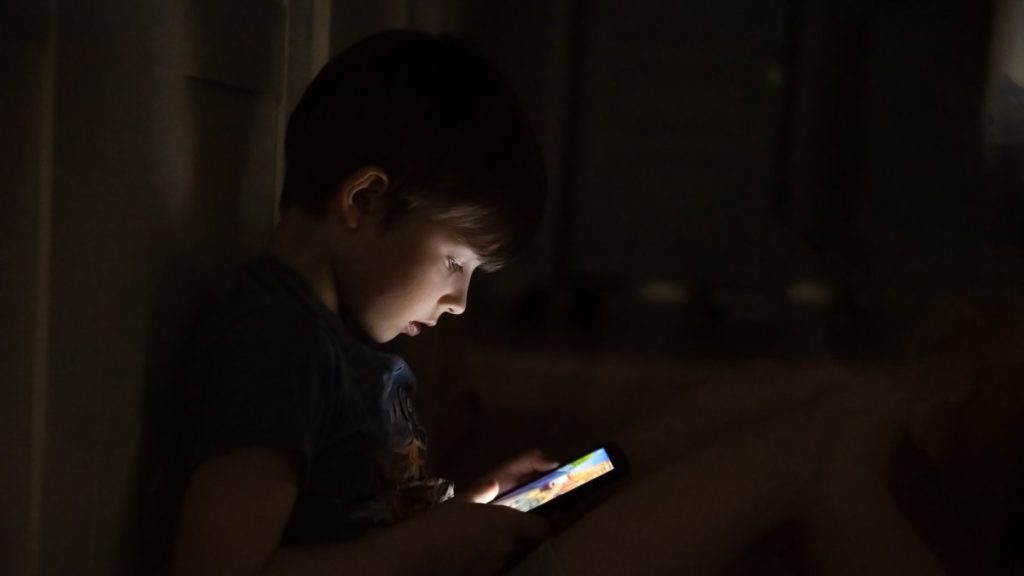The Ministry of National Education (MEB) in Türkiye has revealed the country’s first “Perception of Violence Survey” report. Mustafa Otrar, director general of special education and guidance services at the MEB, stated that one of the key findings was the alarming 91.5% rate of “touching in private areas” being recognized as violence. Professor Murat Okcu, a faculty member at Süleyman Demirel University, emphasized the growing use of artificial intelligence to harm children, adding that 300 million children are subjected to online sexual abuse annually.
Otrar, who presented to the Children’s Rights Subcommittee of the Grand National Assembly of Türkiye, explained the “Perception of Violence Survey,” which had no prior longitudinal studies in the country. The survey, which was completed the day before, involved 6,380 students in the fifth to eighth grades from 26 provinces. Otrar highlighted critical findings, including that the most commonly perceived form of violence was “touching in private areas” (91.5%), followed by threats involving the unauthorized sharing of personal information and photos (88.5%).
“The sharing of private information and photos, and being threatened with them, was defined as a higher form of violence,” he added.
Other findings included “being slapped” (88.3%), “being threatened” (88.3%), “receiving sexually explicit messages” (87%), “unauthorized sharing of private information and photos” (84%), “cursing the family” (80.9%) and “throwing objects” (80.3%). Otrar clarified that these percentages reflected the behaviors perceived as the most violent, not the actual rates of violence encountered by the participants.
In the 2023-2024 academic year, Otrar reported that 5.5 million students, 424,000 parents and 102 teachers were reached in efforts to combat digital addiction. For the 2024-2025 academic year, these numbers had decreased to 3.1 million students, 244,000 parents and approximately 26,000 teachers.
Otrar also stated that they had explored every possible method to reach individuals in the fight against addiction, mentioning the involvement of 44,000 psychological counselors and guidance teachers. Regarding digital abuse, he reported that, in the 2024-2025 academic year, approximately 778,000 students, 38,000 parents and 10,000 teachers had been reached.
Otrar suggested that the commission members watch the movies “One Flew Over the Cuckoo’s Nest,” starring Jack Nicholson, “A Beautiful Mind” with Russell Crowe, and “Good Will Hunting,” starring Robin Williams. He pointed out that 18.5% of a person’s lifetime is spent in school and stressed the importance of preventive measures in schools to build “conscious awareness” toward the outside world.
AI facilitates abuse
During the commission, Okcu warned about the risks and threats posed by artificial intelligence in child abuse. “Most of the images circulating on social media are synthetic. This creates pressure on children and young people to achieve perfection, which leads to deteriorating perceptions of their own bodies and a loss of self-confidence. Social media leads to what is called ‘Facebook depression,'” he said.
Okcu highlighted the need for regulation of digital media, social media and artificial intelligence, citing a report by the WeProtect Global Alliance, which estimates that 300 million children are subjected to online sexual abuse annually. He pointed out that, alongside social media and digital platforms, artificial intelligence is now a technology used in child abuse, exacerbating the threat.
“The internet has increased attacks and threats against children because it gave wrongdoers technological tools. Now, the same is true for artificial intelligence,” Okcu said.
According to the World Bank Group, 40% of the global population uses generative artificial intelligence, which makes the issue of child sexual abuse more complex. Referring to the National Center for Missing and Exploited Children in the U.S., Okcu noted that, as of 2023, 36.2 million reports of online harassment had been made, with 35.9 million of these reports concerning child pornography. He also cited the Internet Watch Foundation in the U.K., which reported that “thousands of children are being harassed or pushed into abuse through deepfake images.”
Okcu stressed that one of the major issues is that digital abuse can occur without the victim’s knowledge or participation. “The child is not actually involved in a sexual act, but images or videos can be generated showing them in a sexual context,” he said, adding that artificial intelligence has provided new ways and digital tools for perpetrators to profit from child sexual abuse.


